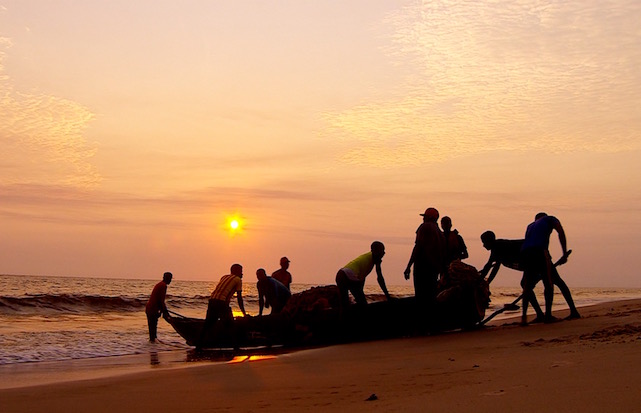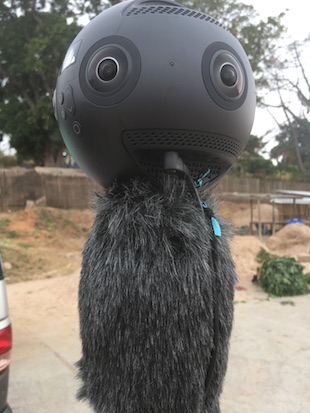The BBC has taken audiences to the Democratic Republic of Congo in its latest virtual reality (VR) experience, offering them an immersive journey through the country.
With the BBC’s Africa correspondent Alastair Leithead as a guide, viewers journey up the Congro River to navigate its rapids, go hunting in the rainforest with an ancient pygmy tribe and enjoy a heart-racing encounter with gorillas.
"We wanted to give audiences a sense of what the Democratic Republic of Congo is all about ahead of their elections," Leithead told Journalism.co.uk.
"Rather than just doing the usual types of stories that people see, such as discussing war or Ebola, this is a journey where you explore the country – you get a sense of the history, of the huge resources it has, but also the poverty."

He explained that the Democratic Republic of Congo is incredibly difficult to navigate and often dangerous, so it was a perfect fit for a virtual reality film – somewhere many people would not get a chance to go.
It is the second VR experience Leithead has reported on, following his news documentary exploring the water politics of the river Nile.
"My job as a foreign correspondent is to take people to places to try and help them become more in touch with the country and understanding of the people.
"We shoot for TV, radio, online and social audiences of course, but taking a VR camera along makes your coverage more immersive. You really get a sense of being there."
The small production crew shot the three-part 360-degree footage with an Insta Pro 360 camera in 6k x 6k, so logistically it was too difficult to watch any of the shots back due to the rendering time to see them in a headset.
"The editing in VR post production is the most challenging bit," Leithead said.
"When filming, you really have to think about what shots would work in a headset and which wouldn't, and take into consideration things like the audio, ensuring you locate the sounds to the pictures so people really feel they are there.
"Quite a lot of the time it is about trial and error. For example, we've learned you have to give people time to look around before moving on to the next shot or giving them too much information at once."

By being inventive with tech, the team built a gimbal on a 3D printer to attach a GoPro Fusion, flying it over the forests and river.
In many shots, viewers can spot the crew, whether they are sitting and watching the action or shooting for another platform.
"It's part of the fun of using the device, plus it's practical – we were filming other content at the same time, so we haven't got the time to leave the shot and come back again after.
"You come along with us, joining us 'behind the scenes' , which is part of the experience.
"Everybody who puts on a headset and sees these films, where they go into the forest and meet gorillas a meter away and travel with the UN in an armoured vehicle in an Ebola zone, come out with a real sense of being there, and are blown away by how much they felt immersed in the story."
The team also produced enough material for a digital text and video feature, a series of navigable YouTube videos, an hour-long binaural radio piece, a TV documentary, and native content for social media.
"We wanted to be ambitious and experimental on this project. It was all about getting the audience to feel like they were there too," he said.
"This is not a lead story on the news – it is background journey ahead of the elections to explain the people what this huge country is – so we wanted to use all the possible BBC avenues to get to as many people as possible."
Check out this teaser video for Congo: A Journey to the Heart of Africa
It is true that audiences are not yet totally familiar with virtual reality, nor do a lot of them possess the equipment needed to view it – in this case, the Oculus Go or Samsung Gear headset.
As a result, the publisher has also made the VR experience available to watch in 360-degree video on a smartphone, computer or an alternative VR headset, like Google Cardboard.
Check out other virtual reality projects from the BBC here, including pieces about the 1943 Berlin Blitz, the barriers faced by the suffragettes and a VR spacewalk.
Free daily newsletter
If you like our news and feature articles, you can sign up to receive our free daily (Mon-Fri) email newsletter (mobile friendly).










